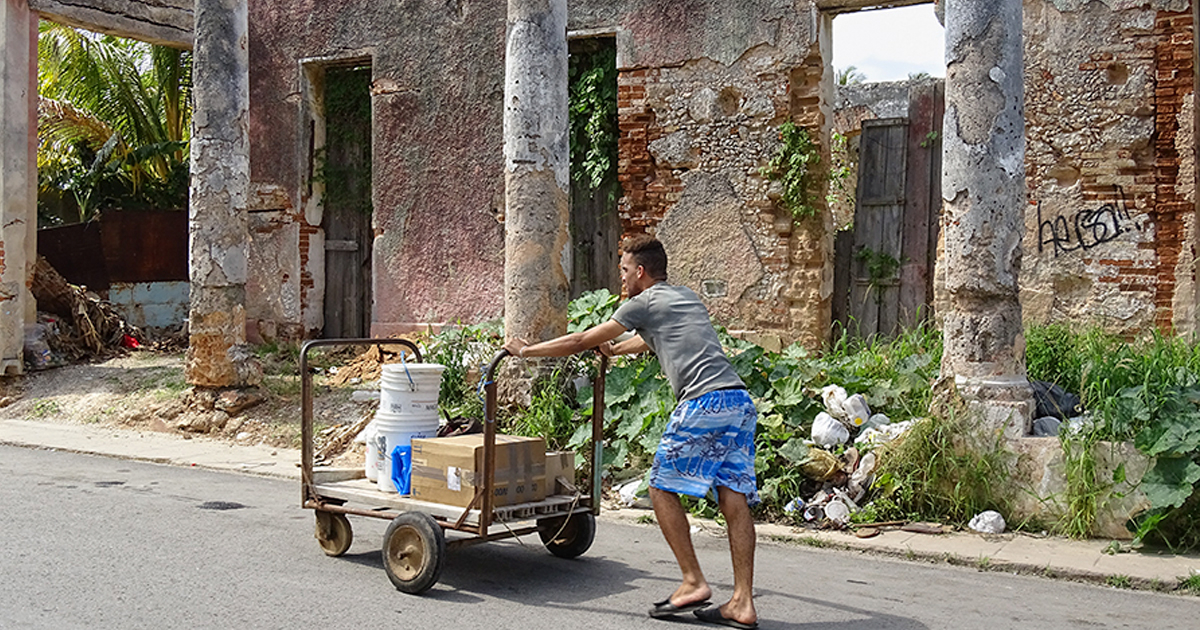
Related videos:
When Raúl Castro spoke in 2013 about a power transition to a “new generation,” many young Cubans, both on the island and abroad, held out hope against all odds for improvements. But now, two years after the transfer of power to Miguel Díaz-Canel, the Cuban people are facing one of the most challenging moments in the last 62 years.
This is not a temporary condition, but rather the trajectory of decades of an authoritarian government and a disastrous economic management orchestrated by Fidel and Raúl Castro. And now, Díaz-Canel is at the helm as a puppet. Marxism does not work.
Instead of transforming Cuba into a country that works for its people, Díaz-Canel sought to consolidate power for the Communist Party. By intensifying the well-known tactics used by the Castro brothers, Díaz-Canel further represses basic freedoms, imprisons dissenters, condones state-sponsored killings, and has allowed the already existing poverty and malnutrition to worsen in society.
For younger Cubans, the harsh grip of the authoritarian state has an additional consequence: the destruction of hope. Recent moves by Díaz-Canel to reinforce state control over the economy, have led to a decline in living standards, further closing the doors for younger Cubans who aspire to a better future. Now, the shock caused by the pandemic has resulted in an even deeper collapse on the island, as providers struggle to furnish basic resources.
The Cuban economy has long depended on other dictators in our region. The disastrous policies of the dictator Nicolás Maduro have left Venezuela's economy in ruins, and the Cuban people are also feeling the damage caused by that regime. The result has been an increase in food shortages, longer lines, and even higher prices than usual. Today, Cubans going to markets face difficulties in finding basic food items and hygiene products on the shelves. Those who can find these essentials have to pay exorbitant prices. It is a rapidly worsening disaster, especially for Cubans who lack personal connections with government officials or those who rely on remittances from abroad.
The world largely ignores the growing humanitarian crisis on the island, in part because communication outward remains difficult and, in some cases, has only worsened. The regime sets mobile data prices at levels that are practically unaffordable, leaving a large portion of the population without internet access. For those who can afford internet access, which remains heavily censored, independent news is prohibited, causing the true dimensions of this shortage to be unknown to many.
The deepening economic crisis is leading the regime to attack foreign nations like the United States and even the very people it is supposed to be protecting. The regime's mismanagement of the economy makes it clear that its top priority is to maintain the government monopoly over the supply of food and other goods, regardless of the cost, even if it means allowing the people to starve in the process.
The public image is also important to these tyrants. The regime attempts to falsely sell the world on its respect for human rights. They have begun broadcasting trials of Cubans accused of theft, as well as imposing heavy fines on independent journalists and social media personalities who criticize the dictatorship. They have also introduced a new digital surveillance agency to detect what they call "illicit economic activity." Recently, Díaz-Canel, like the Castro family, has intensified efforts by using rapid response brigades, police, and undercover civilians to intimidate and arrest anyone who poses a threat to their authoritarian government.
This is not a new Cuba. It remains that Cuba of the Castro brothers, which means the people will continue to suffer. And as the economy tightens further around the Communist Party, its members can only hope for a change in the U.S. administration. Díaz-Canel and Raúl Castro are counting on a Joe Biden victory, hoping that a new administration will overlook the human rights violations and arbitrary detentions carried out by the regime.
They also expect that sanctions against the ruling elites of Cuba will be eased. This would represent a radical shift from the Trump administration, whose determination to put an end to years of impunity for the regime and impose sanctions against Raúl Castro and his corrupt family have exerted the necessary pressure for democratic changes to take place in the country and to prioritize, once and for all, the suffering Cuban people.
The Biden administration would allow the Communist Party to replenish its coffers and help ensure its survival, although it would do little for the Cuban people who are struggling under the authoritarian control of the regime. But as we have seen for decades, the Castro brothers and now the puppet Díaz-Canel care little for the people of Cuba and only for themselves.
Filed under:
Opinion article: Las declaraciones y opiniones expresadas en este artículo son de exclusiva responsabilidad de su autor y no representan necesariamente el punto de vista de CiberCuba.